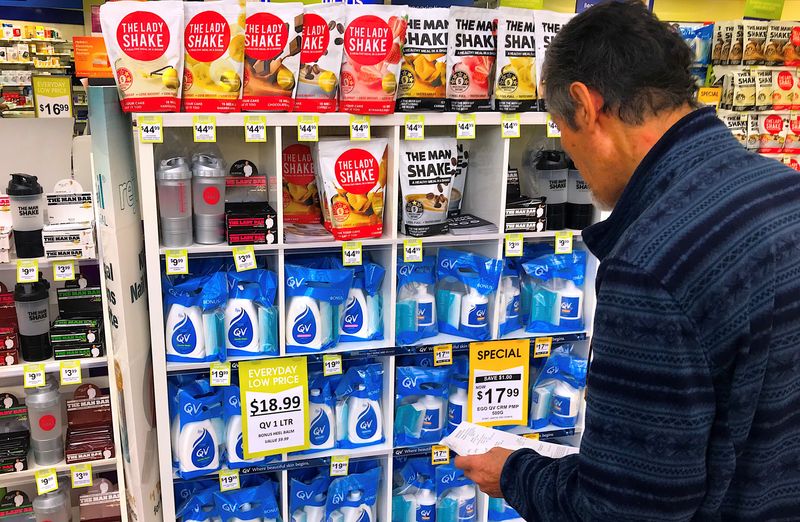By Stella Qiu
SYDNEY (Reuters) -Australian retail sales were flat in July after two months of upbeat results, showing large-scale tax cuts were yet to boost spending and firming expectations the next move in interest rates will be down.
Data from the Australian Bureau of Statistics (ABS) on Friday showed retail sales were unchanged in July month-on-month, slowing from the 0.5% rise in June. Analysts had expected a 0.3% increase in July.
Sales rose 2.3% from a year earlier, slowing from previous month's 2.9% as consumers grappled with inflation and high mortgage rates. That was a weak result compared with the country's population growth of about 2.6%.
Spending on clothes and at department stores took a hit, down 0.6% and 0.5% month-on-month, respectively, in July, while cafes, restaurants and takeaway food all saw a drop of 0.2% as shoppers turned frugal.
Food retailing was the only category that saw an increase, up 0.2%. Indeed, Australian grocers Coles and Woolworths both posted decent profits.
"Overall, it's clear there was little momentum behind consumer spending at the start of the quarter. And while it is early days, the data broadly reinforce our view that Australian households are not rushing to spend their newfound tax cuts," said Abhijit Surya, Australia and New Zealand economist at Capital Economics.
"At the margin, the weakness in household consumption raises the risk that the RBA will cut rates before Q2 2025 as we're currently forecasting."
This weakness is the result of high interest rates with the Reserve Bank of Australia (RBA) raising rates by 425 basis points to 4.35% since May 2022 to tame inflation, which ran at 3.5% in July, above the bank's 2-3% target band.
Policymakers have ruled out a near-term rate cut, wary that consumption could pick up more than expected as real incomes turn positive thanks to the government's sweeping tax cuts in July, giving average wage earners an extra A$1,500 a year.
House prices have also been hitting record highs this year as a rush of migrants stretch limited supply, increasing the wealth of home owners.

Recent bank data on card transactions suggests July was sluggish, with Westpac observing consumers are mostly sitting on the extra cash from tax cuts rather than spending it and the third quarter would be likely another soft quarter.
Markets have been scaling back bets for a rate cut this year after July inflation slightly beat expectations. A first easing in December is no longer a done deal, with just a 80% probability.